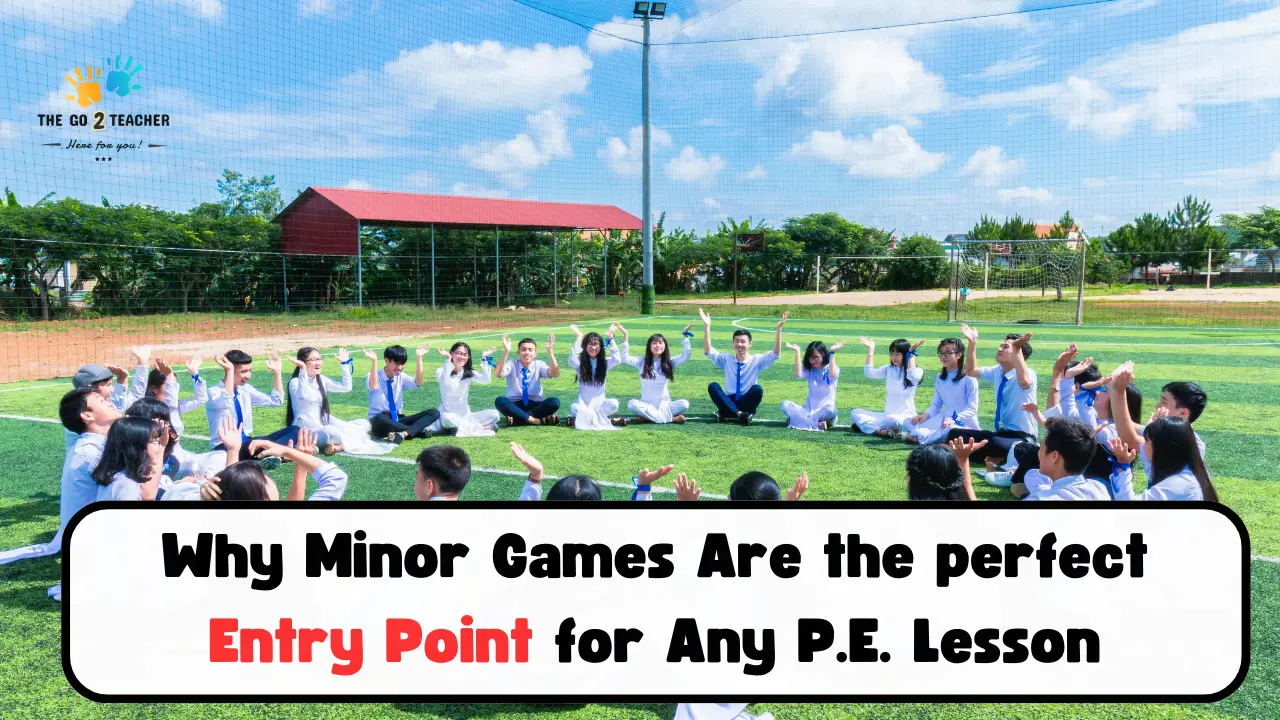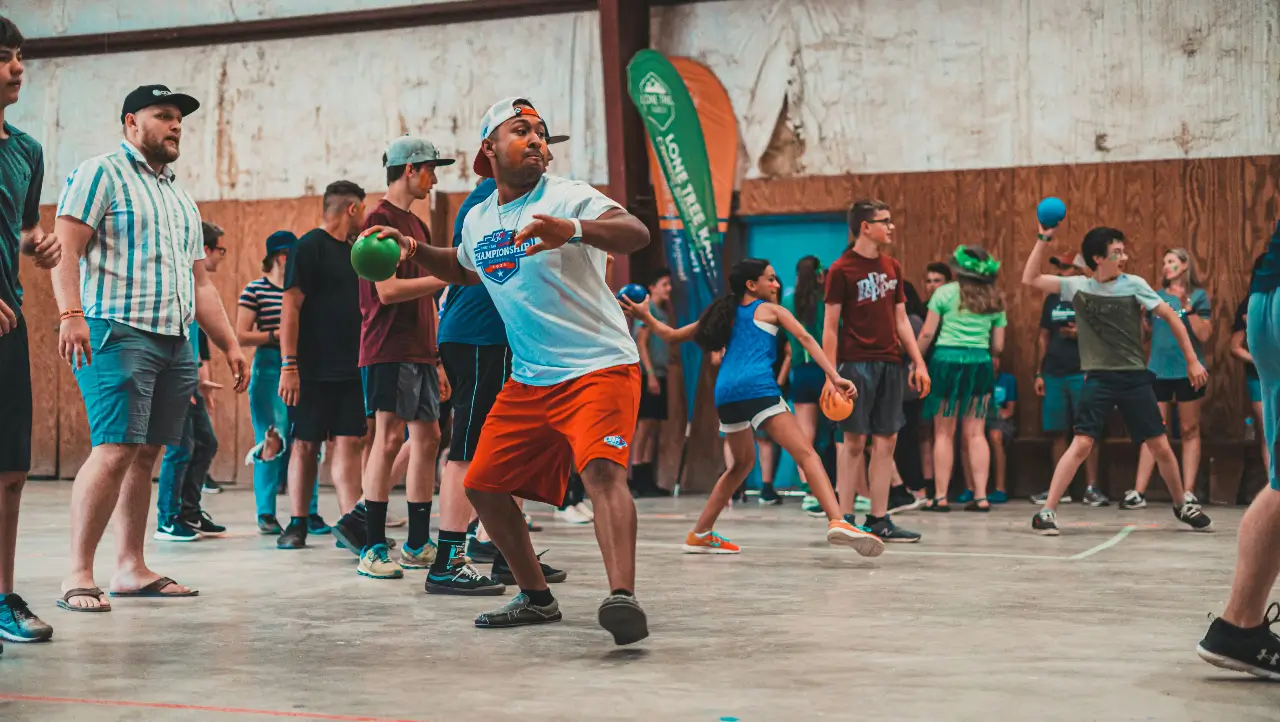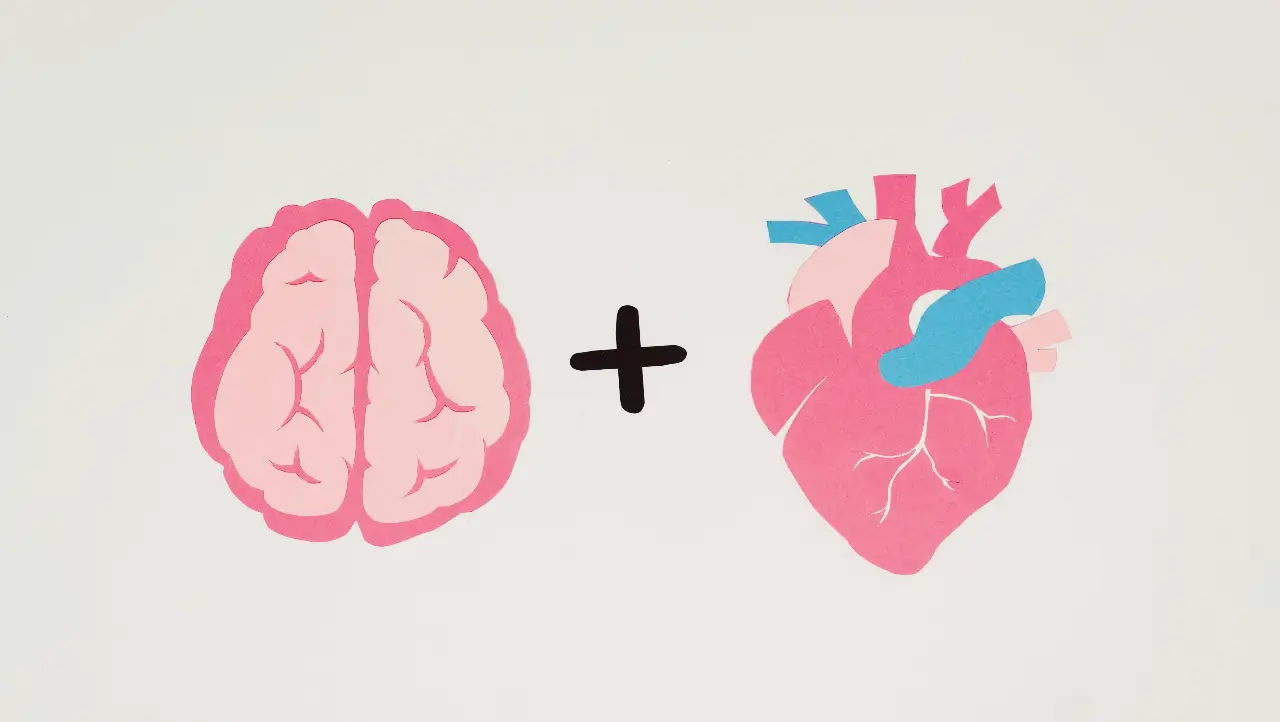3 Reasons Why Minor Games Are a Great Entry Point for Any P.E. Lesson
May 15, 2025


Kas
Minor games are magical tools that should be utilised by every teacher regardless of the year level you teach. They are the perfect entry points for every lesson and unit and in this article, you will find out why!
Low Barrier to Entry
Minor games are the perfect starting point for any unit of work because you can tailor them to include the key concepts you are trying to focus on, but in an approachable way. Minor games, due to their nature, are simple in instruction, equipment, and requirements for students to find success. This allows every student in the class to be able to participate and be successful.
This low barrier to entry boosts engagement and allows you to observe the class and direct future lessons in a way that supports the specific needs of the students in terms of meeting your learning goals.
Alternatively, if you were to start your unit of work with a complex game or sport, you run the risk of having many students disengaged from the start. They may then struggle to stay motivated in the lessons to come, regardless of any modifications you use. Ensuring students feel capable and confident at the start of the unit will set them up for success later on.

Builds Confidence and Participation
As mentioned before, minor games have a low barrier to entry, allowing students of all abilities to participate and, above all, have fun. Students will participate in a game that they can find success in, that they can understand, and engage in to the same extent as their peers.
The issue I tend to see in some physical education lessons, in both primary and high schools, is the ineffective use of sport-specific games. Many educators open the lesson with these games, which are far too in-depth for students to engage in straight away. In an attempt to teach their students a complex game from scratch, students get disengaged and risk developing low self-esteem from their inability to understand the game or to find success.
Of course, there is a place for starting units of work with full games, but those should be used intentionally and for a purpose. Even when I teach older students with a good grasp of general rules and sound fundamental movement skills, I will still always start with a minor game to warm up, get them engaged and having fun, and most importantly to highlight the transferable skills we are focusing on. This mentally and physically prepares them for the main activity or sport they will soon play.

Warms Up Both Body and Mind
Minor games get the ball rolling for your lesson (no pun intended)—they get students slowly moving after they have been sedentary for an extended period of time, and also get them to engage with their peers, communicate, and adapt to the higher level of effort that is required of them in a HPE lesson.
Minor games, being simple, allow the teacher to keep explicit instruction low and allow students to listen briefly to initial rules and get straight into gameplay. When students come to P.E., they know they are going to be moving their bodies one of the reasons most, if not all, students love P.E. lessons. They want it to be practical; they don’t want to sit and listen… because that’s what they’ve been doing all day. Get them into your lesson and get them moving. Minor games are ideal for this.
Simple to Teach!
Don’t overlook this key element of minor games. When teaching a new topic, class, or year level, it can be challenging to find an activity that meets students’ needs while also ensuring you understand the requirements of the task. This is especially true if you’re not an experienced HPE teacher or if PE isn’t your primary subject. In Australia, many primary school teachers are required to teach PE in the absence of a specialist teacher.
Minor games, by nature, are simple and allow you as the teacher to easily grasp the key concepts. This means you can confidently deliver lessons and objectives without needing extensive experience. In contrast, teaching a formal sport—especially one you’re unfamiliar with—often involves complex rules that can confuse students and leave you unsure of how to respond to their questions.
The beauty of minor games is that they let you teach essential concepts and skills through a simplified game format. As an educator, this keeps things manageable, reduces the pressure, and gives you flexibility to adapt lessons as needed. They require fewer resources and can be easily modified or extended to provide more challenge as students become more proficient in the learning goals.
What Does The Evidence Say?
**Improves Fundamental Movement Skills (FMS): **Minor games enhance students’ FMS (e.g., running, catching, jumping), which are foundational for physical literacy. Gallahue & Cleland-Donnelly (2003) emphasise that early FMS development is crucial for long-term physical activity participation.
- Students with stronger FMS are more likely to engage in moderate-to-vigorous physical activity (MVPA) by up to 42% more per day (Lubans et al., 2010).
**Increases Student Engagement and Motivation: **Game-based P.E. approaches (like minor games) improve student enjoyment and motivation.
- A systematic review found that enjoyment levels in game-based activities were 30–40% higher compared to traditional instruction (Beni, Fletcher, & Ní Chróinín, 2017, BMC Public Health).
**Enhances Physical Fitness: **Minor games contribute to measurable gains in physical fitness metrics, including muscular strength, endurance, and aerobic capacity.
- A 6-week intervention using minor games showed a significant improvement (p < 0.05) in students’ fitness scores on standardised fitness tests (Kumar & Sudhakar, 2020, Int. J. of Physical Education, Sports and Health).
Helpful Resources:
- Fundamental Movement Skills: Flash Cards + Circuit
- Coloured Cones For Teaching P.E! (Amazon)
- Coloured Sit Spots for behaviour management! (Amazon)
- Awesome Teacher Planner! (Amazon)
- How to create a better work life balance?
- Why are minor games important for students to learn?
- Emotional Regulation Posters
- Assessments for P.E- Ready to go
- What are invasion games?
- First time teaching P.E? Heres where to start!
